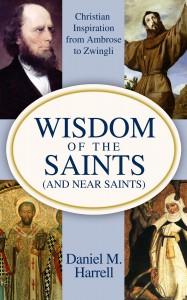Today’s guest post comes from Travis Segar, one of an excellent class of students from Bethel Seminary who recently studied the intersection between theology and science.
Evolution presents problems for us as Christians. It isn’t because of what some atheists believe: that if evolution is true that God ceases to exist. Evolution is a problem because it challenges how we have traditionally spoken about theological concepts over the course of history.
Recently, geneticists have found evidence that leads them to believe that the human genome is to diverse to come from a single pair of humans, putting into question the historicity of Adam and Eve. This in turn puts our notion of an actual Fall, the introduction of original sin, into question. If the Fall is not an actual historical event, as described in the Bible, what does that do for our explanation of evil in the world? A traditional thought around the presence of evil in the world is because of the Fall. And without the Fall, there would be no need for a savior to come to rescue us all.
Evolution presents us with a conundrum of how the actual Fall occurred or whether there was an actual Fall. Evolution is about the survival of the fittest and natural selection. As the population of pre-Homo sapiens evolved, I suspect that they were very much concerned with their own survival. One of the key items to their survival would be to care for themselves over others. That selfishness is key to an individual’s survival in a harsh world.
Evolution predisposes us to be selfish and concerned with self-preservation at the expense of other creatures. But evolution doesn’t call our self-preservation (selfishness) sinful. It is just an amoral process. We find it easy to label those evolutionary processes evil. But they are not in themselves evil nor are they good. Those processes are neither.
Evolution would tell us that our selfishness occurs prior to the Fall, prior to our ability to choose and prior to our ability to know self. When we, as Homo sapiens, developed self-consciousness it allowed our ancestors to short-circuit that hard-wired selfishness. This self-consciousness changes us beyond being a mere product of evolution. When this happened, I would argue that perhaps we developed free will. Our consciousness of self allows us to choose to pick the well-being of others over our own well-being and vice versa. Perhaps, the moment we developed free will and exercised that free will to choose was the moment of the Fall.
The Fall does not introduce all evil into the world. The Fall introduces the ability of humans to be evil. Through the Fall we lost our innocence and became trapped in our sin.
So did the Fall happen to everyone at once? Frankly does it truly matter if it did or didn’t? Does our faith hinge on whether the Fall occurred in one moment or rather does the Bible tell the story that we are fallen. The Bible describes the Fall and it doesn’t take much to see that we are all fallen creatures and cannot change our own sinful state.
We need to free ourselves (and our conversations) from pinning our hopes and faith in how we read Genesis. No matter what side of the debate you are on, we all could use a little more humility. When we reach the throne of God and have to account for our lives, we will not be asked whether we believe in evolution or creationism, a literal or figurative Adam or if the Fall occurred in the exact way that is described in Genesis. We will be asked if we know his Son. The answer to that question is of the utmost importance.











